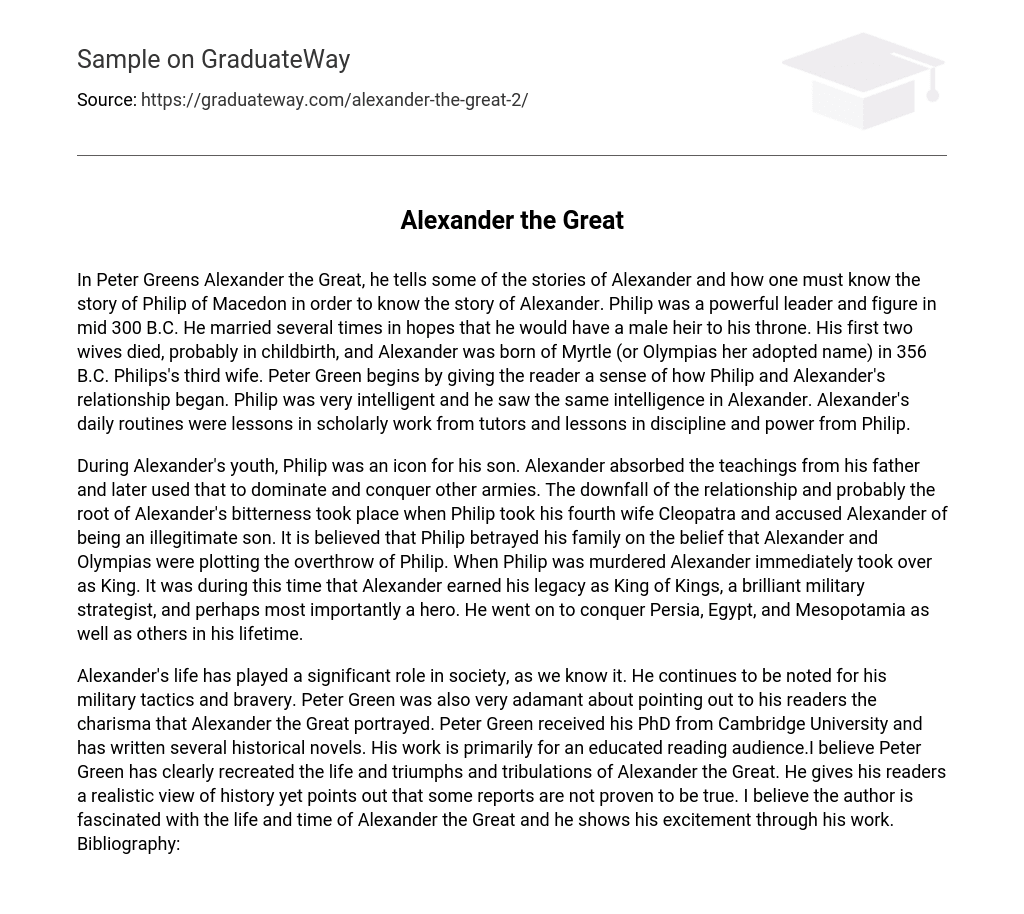In Peter Greens Alexander the Great, he tells some of the stories of Alexander and how one must know the story of Philip of Macedon in order to know the story of Alexander. Philip was a powerful leader and figure in mid 300 B.C. He married several times in hopes that he would have a male heir to his throne. His first two wives died, probably in childbirth, and Alexander was born of Myrtle (or Olympias her adopted name) in 356 B.C. Philips’s third wife. Peter Green begins by giving the reader a sense of how Philip and Alexander’s relationship began. Philip was very intelligent and he saw the same intelligence in Alexander. Alexander’s daily routines were lessons in scholarly work from tutors and lessons in discipline and power from Philip.
During Alexander’s youth, Philip was an icon for his son. Alexander absorbed the teachings from his father and later used that to dominate and conquer other armies. The downfall of the relationship and probably the root of Alexander’s bitterness took place when Philip took his fourth wife Cleopatra and accused Alexander of being an illegitimate son. It is believed that Philip betrayed his family on the belief that Alexander and Olympias were plotting the overthrow of Philip. When Philip was murdered Alexander immediately took over as King. It was during this time that Alexander earned his legacy as King of Kings, a brilliant military strategist, and perhaps most importantly a hero. He went on to conquer Persia, Egypt, and Mesopotamia as well as others in his lifetime.
Alexander’s life has played a significant role in society, as we know it. He continues to be noted for his military tactics and bravery. Peter Green was also very adamant about pointing out to his readers the charisma that Alexander the Great portrayed. Peter Green received his PhD from Cambridge University and has written several historical novels. His work is primarily for an educated reading audience.I believe Peter Green has clearly recreated the life and triumphs and tribulations of Alexander the Great. He gives his readers a realistic view of history yet points out that some reports are not proven to be true. I believe the author is fascinated with the life and time of Alexander the Great and he shows his excitement through his work. Bibliography:





